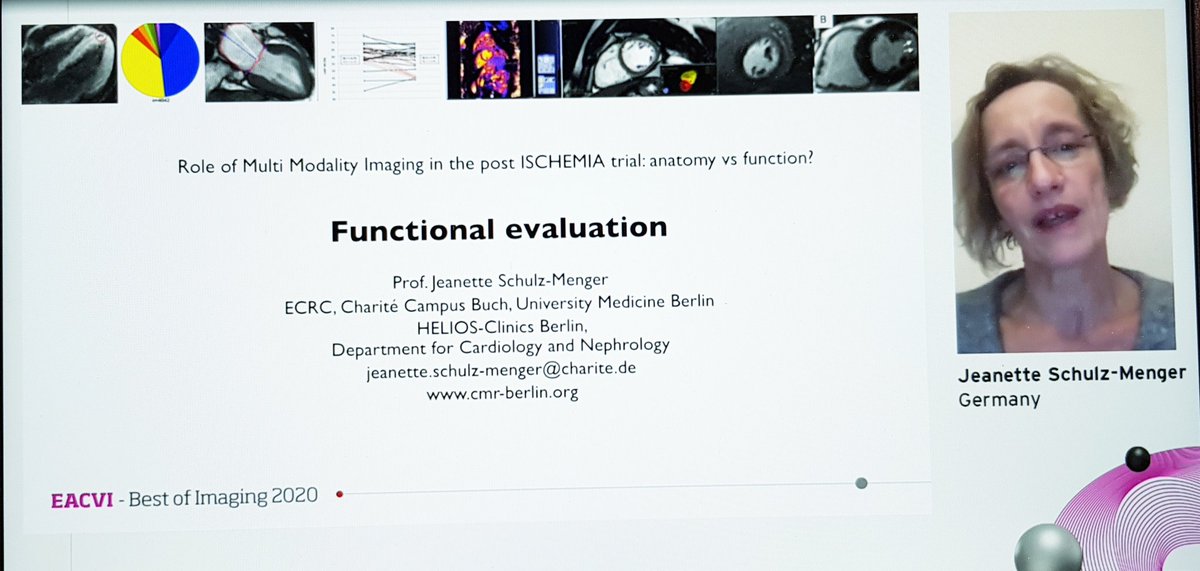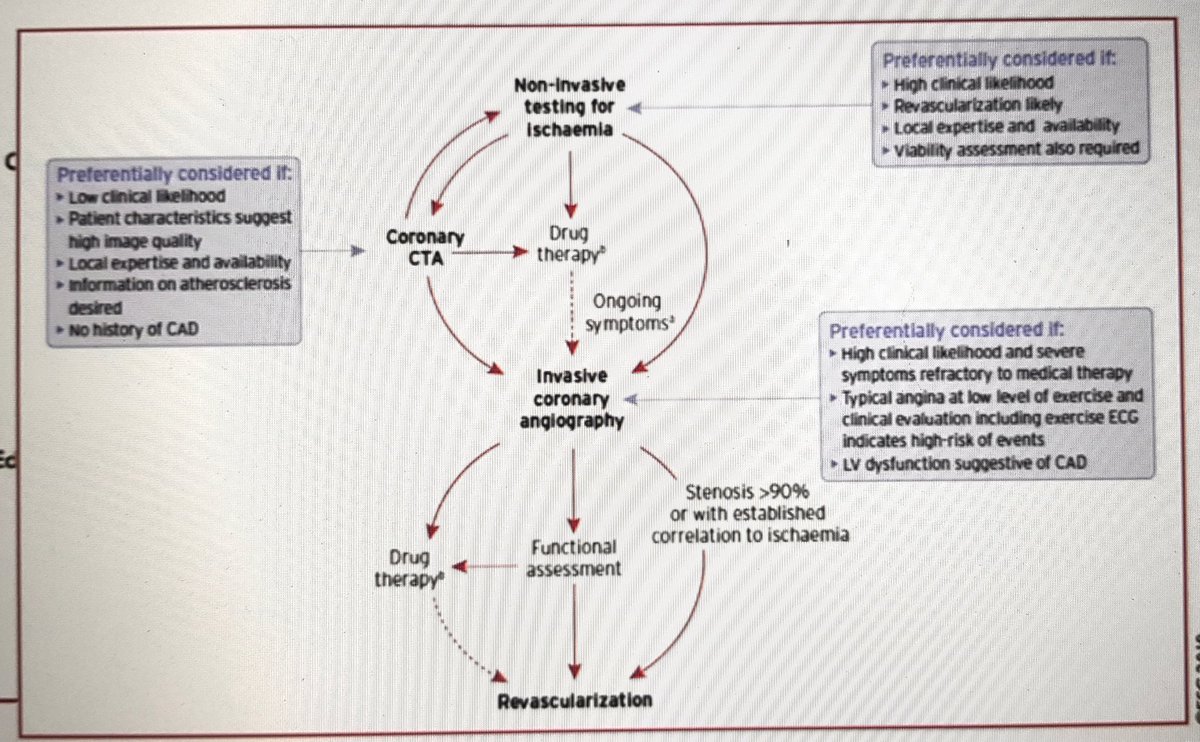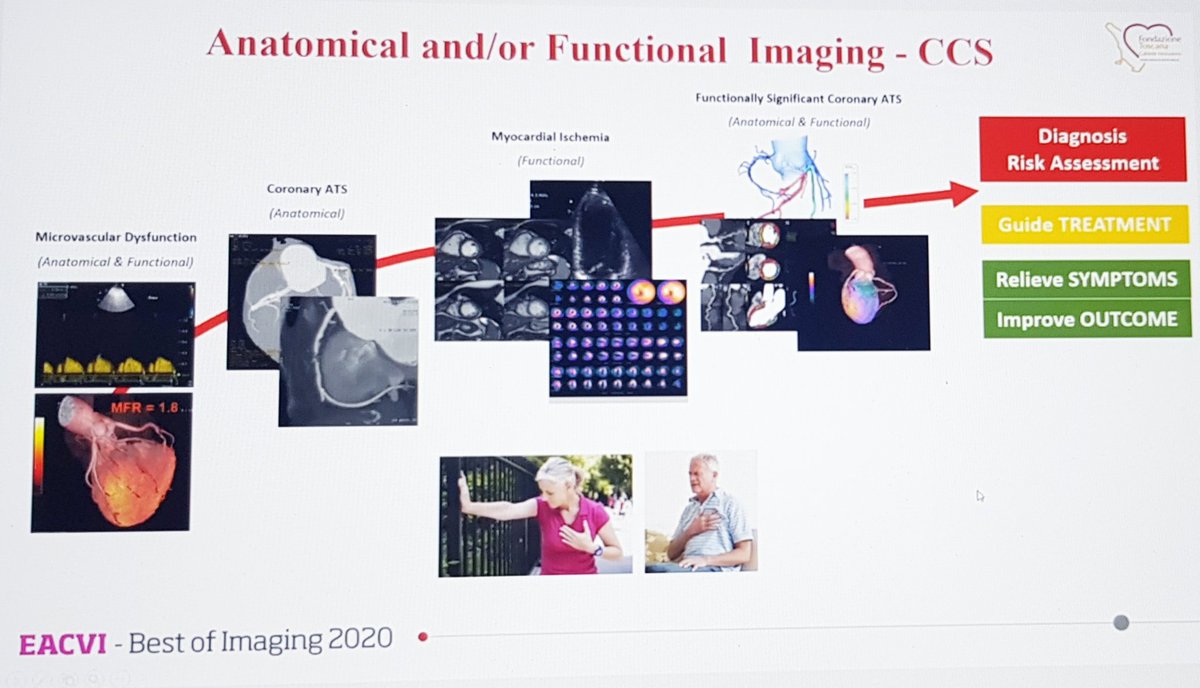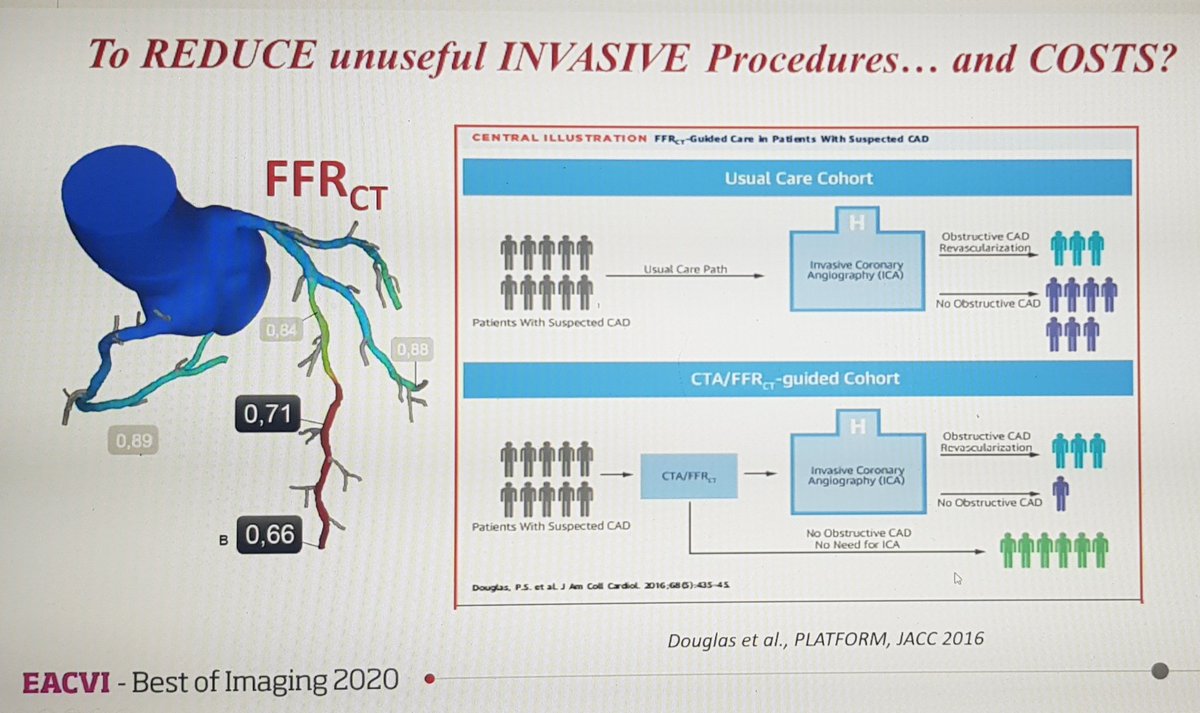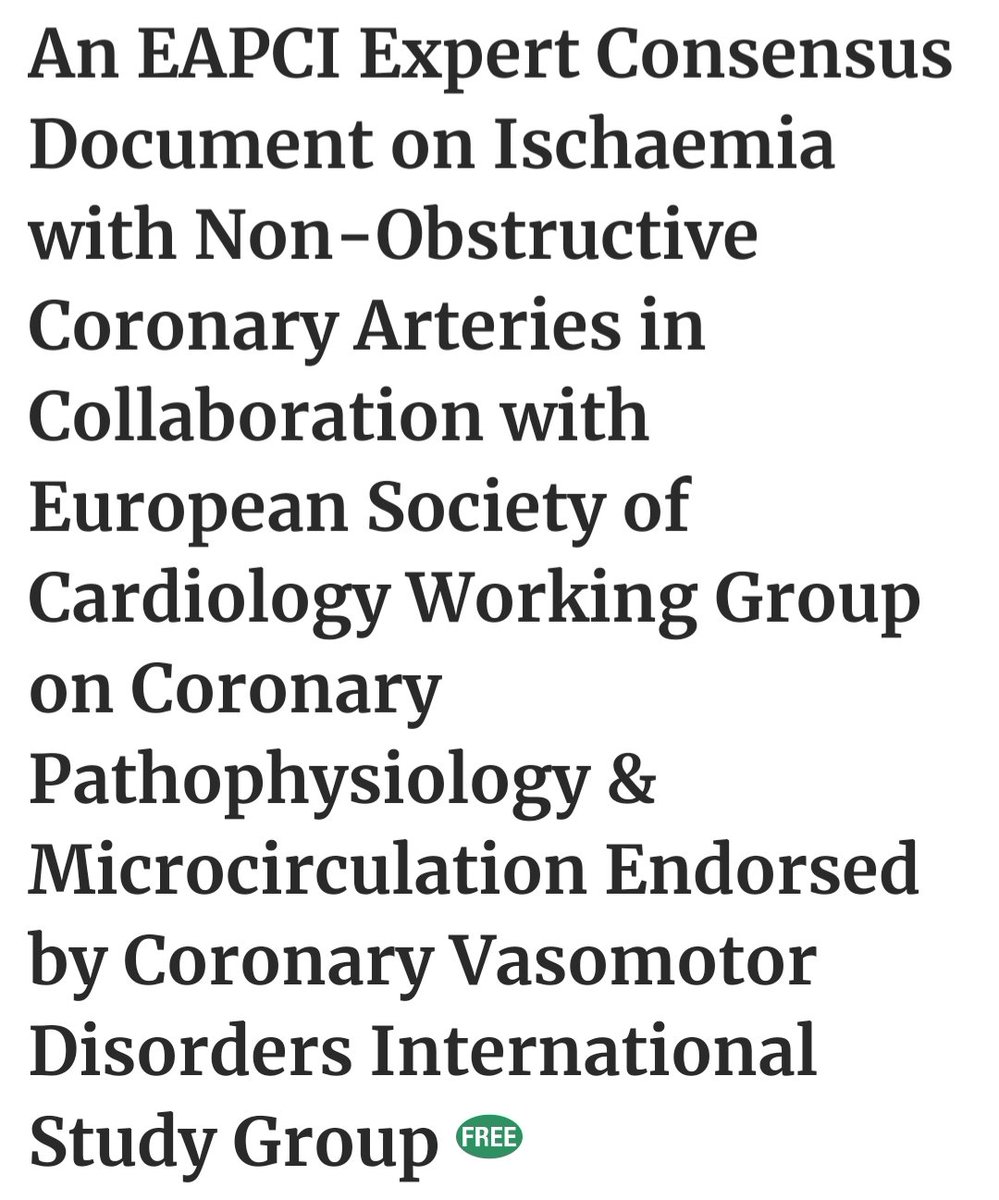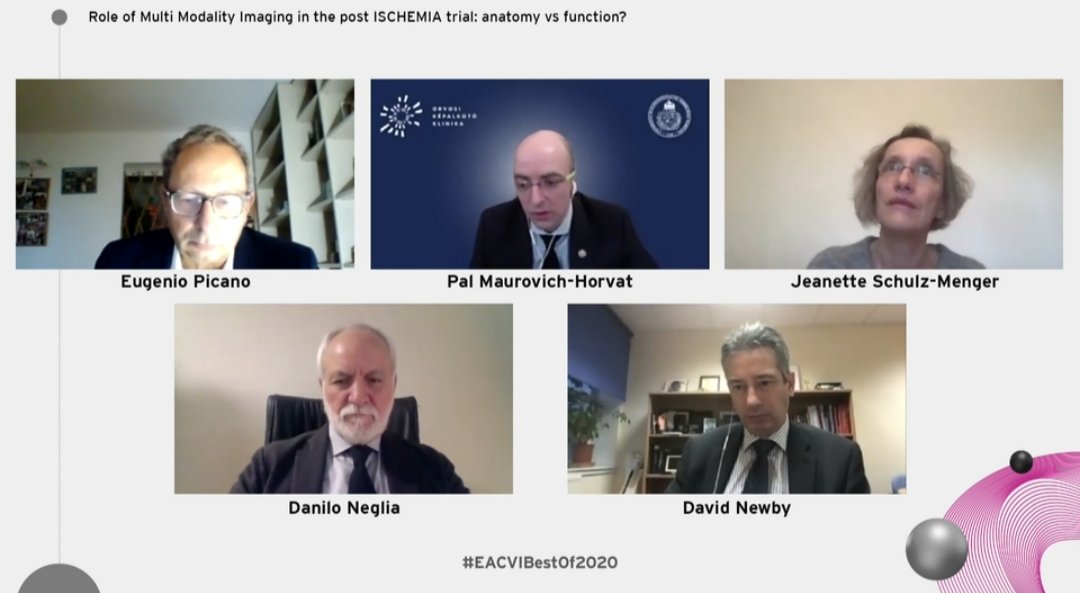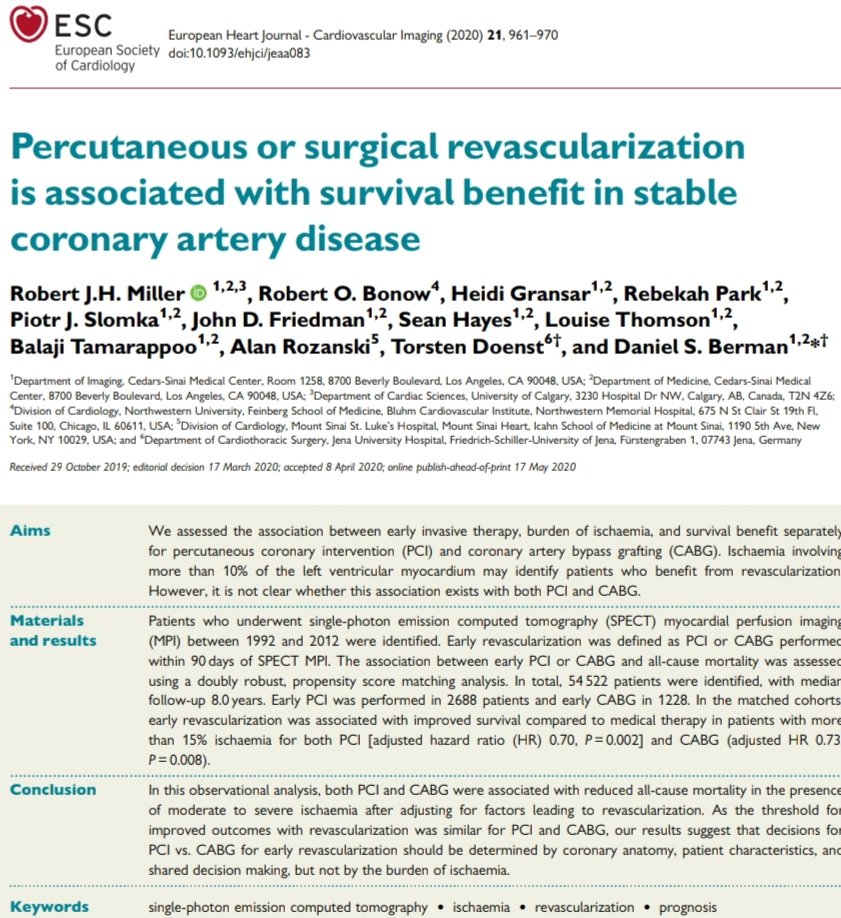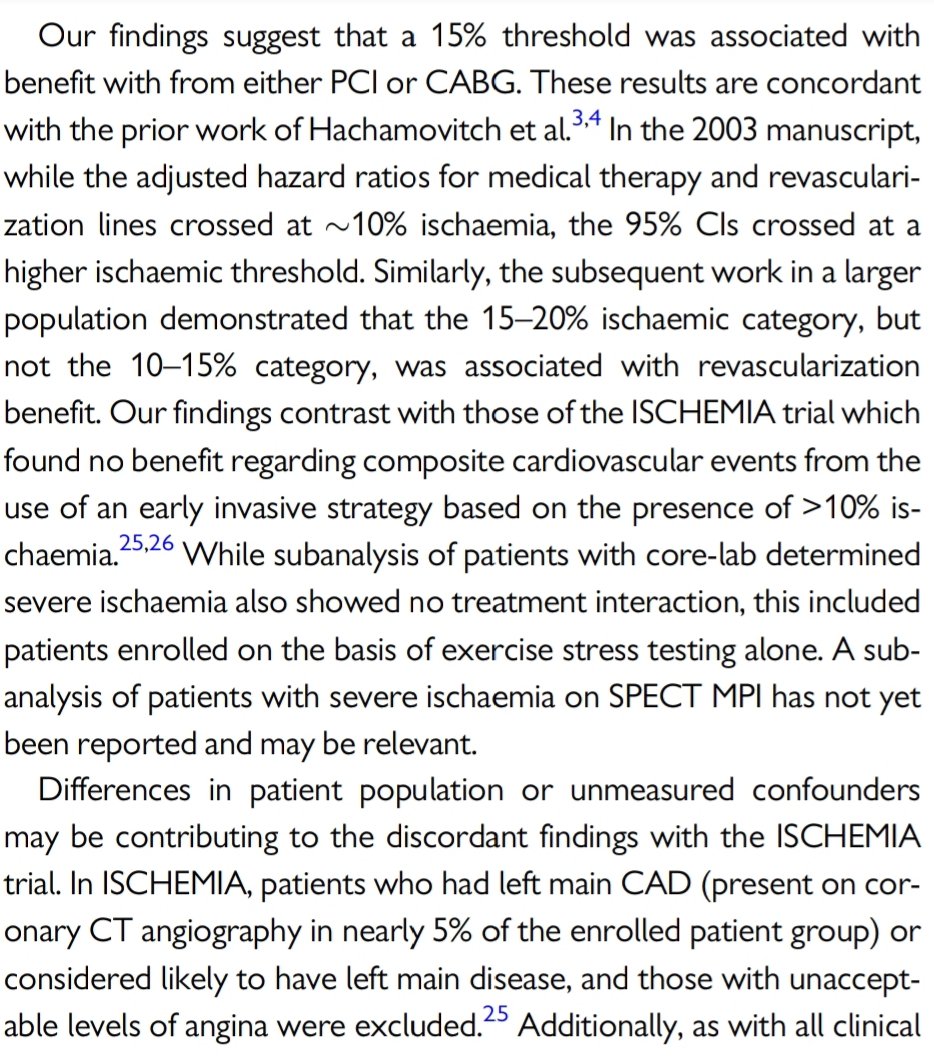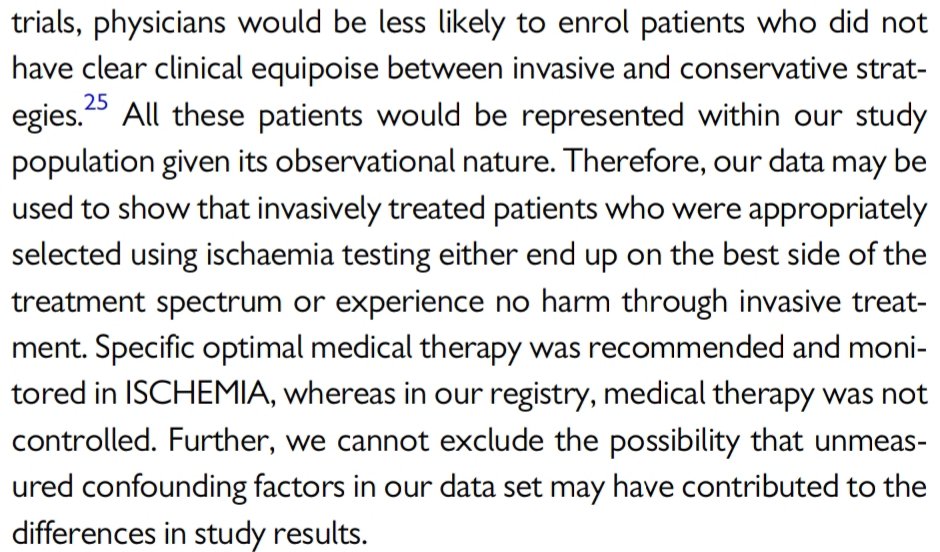#EACVIBestof2020
Ok, so I've caught up now!
3 talks, a summary and then panel discussion.
1st talk from Pal Maurovich-Horvat, largely CT based, reminded us that of all non-invasive tests, CTCA has the best negative predictive value. That's true, it's pretty much 100%. https://twitter.com/dr_benoy_n_shah/status/1337687759285313536
Ok, so I've caught up now!
3 talks, a summary and then panel discussion.
1st talk from Pal Maurovich-Horvat, largely CT based, reminded us that of all non-invasive tests, CTCA has the best negative predictive value. That's true, it's pretty much 100%. https://twitter.com/dr_benoy_n_shah/status/1337687759285313536
#EACVIBestof2020
We were also reminded of the SCOT-HEART trial and data indicating that imaging plaque morphology can identify plaques at risk of triggering events...
We were also reminded of the SCOT-HEART trial and data indicating that imaging plaque morphology can identify plaques at risk of triggering events...
#EACVIBestof2020
The next talk from Prof Jeanette Schulz-Menger largely focussed on CMR and its utility in this setting.
The next talk from Prof Jeanette Schulz-Menger largely focussed on CMR and its utility in this setting.
#EACVIBestof2020
This came up which I thought was interesting, as it's often cited as a 'weakness' of #ISCHEMIA that ETT patients were included & that not all had imaging, but let's explore that a little as I feel that criticism is both unfair but also possibly not that relevant:
This came up which I thought was interesting, as it's often cited as a 'weakness' of #ISCHEMIA that ETT patients were included & that not all had imaging, but let's explore that a little as I feel that criticism is both unfair but also possibly not that relevant:
#EACVIBestof2020
1. In original ISCHEMIA trial, there was never a plan to include treadmill tests. That only happened due to slow recruitment. The same slow recruitment that has hampered many trials trying to address conventional dogmas (e.g. STICH)...
1. In original ISCHEMIA trial, there was never a plan to include treadmill tests. That only happened due to slow recruitment. The same slow recruitment that has hampered many trials trying to address conventional dogmas (e.g. STICH)...
#EACVIBestof2020
Not all Drs were willing to randomize any patient. That's real life.
2. Remember these patients, with *symptoms* & abnormal treadmill test, still had to have flow-limiting CAD confirmed on CTCA...so they didn't enter trial *just* based on an abnormal ETT
Not all Drs were willing to randomize any patient. That's real life.
2. Remember these patients, with *symptoms* & abnormal treadmill test, still had to have flow-limiting CAD confirmed on CTCA...so they didn't enter trial *just* based on an abnormal ETT
#EACVIBestof2020
Next talk from Dr Danilo Neglia, putting together both function & anatomy. He talked about the differing info you obtain - CT for non-obstructive plaque that can be treated with primary prevention drugs, functional tests for detecting flow-limiting CAD...
Next talk from Dr Danilo Neglia, putting together both function & anatomy. He talked about the differing info you obtain - CT for non-obstructive plaque that can be treated with primary prevention drugs, functional tests for detecting flow-limiting CAD...
#EACVIBestof2020
I'm hesitant to correct the great Dr Neglia, but when describing #ISCHEMIA trial he stated patients underwent CTCA first & those with CAD then underwent stress testing...whereas it was other way round. CTCA came after Core lab verified mod-severe ischaemia test
I'm hesitant to correct the great Dr Neglia, but when describing #ISCHEMIA trial he stated patients underwent CTCA first & those with CAD then underwent stress testing...whereas it was other way round. CTCA came after Core lab verified mod-severe ischaemia test
#EACVIBestof2020
As a result, although this slide may in many people's minds be a reasonable pathway of investigations, it has CTCA then selective stress testing, so that paradigm is not based on #ISCHEMIA methodology
As a result, although this slide may in many people's minds be a reasonable pathway of investigations, it has CTCA then selective stress testing, so that paradigm is not based on #ISCHEMIA methodology
#EACVIBestof2020
I also found this interesting, the concept of the "non-useful" angio. Is an angiogram only useful if you find epicardial CAD? Remember just recently EAPCI published their position paper on Ischaemia with NOn-Obstructive Coronary Arteries (INOCA)...
I also found this interesting, the concept of the "non-useful" angio. Is an angiogram only useful if you find epicardial CAD? Remember just recently EAPCI published their position paper on Ischaemia with NOn-Obstructive Coronary Arteries (INOCA)...

#EACVIBestof2020
I draw your attention to the sentence circled in red!
So, at present, to rule out INOCA, you should be doing ACh testing in the lab...so surely many of these patients *will* need invasive angiography?
I draw your attention to the sentence circled in red!
So, at present, to rule out INOCA, you should be doing ACh testing in the lab...so surely many of these patients *will* need invasive angiography?
#EACVIBestof2020
I know this exists, have seen it and read much on it. Was involved (peripherally!) in this case when on-table ischaemic symptoms reproduced by ACh were captured by simultaneous MCE, detecting a clear perfusion defect before wall motion abnormality was apparent
I know this exists, have seen it and read much on it. Was involved (peripherally!) in this case when on-table ischaemic symptoms reproduced by ACh were captured by simultaneous MCE, detecting a clear perfusion defect before wall motion abnormality was apparent
#EACVIBestof2020
Anyway, I digress! After some expert comments from David Newby there was a panel discussion to sum things up...
Anyway, I digress! After some expert comments from David Newby there was a panel discussion to sum things up...
#EACVIBestof2020
But in this whole session, one thing caught my eye the most, because it encapsulates the dilemmas we still see, where the ISCHEMIA trial results are not accepted or contradicted by less robust studies. This was fascinating; this study was presented...
But in this whole session, one thing caught my eye the most, because it encapsulates the dilemmas we still see, where the ISCHEMIA trial results are not accepted or contradicted by less robust studies. This was fascinating; this study was presented...

This was published earlier this year - a RETROSPECTIVE, OBSERVATIONAL, PROPENSITY SCORE MATCHED study looking at outcomes in patients that underwent nuclear tests between 1992-2012. They found that in patients with >15% ischaemic burden, revasc (PCI or CABG) improved survival...
#EACVIBestof2020
In Discussion, authors offer reasons why the results may differ from ISCHEMIA. I don't get it! You've just had a large, international multicentre RCT using Core-Labs for imaging, state-of-the-art CTCA and OMT...and people are trying to question it with this?!
In Discussion, authors offer reasons why the results may differ from ISCHEMIA. I don't get it! You've just had a large, international multicentre RCT using Core-Labs for imaging, state-of-the-art CTCA and OMT...and people are trying to question it with this?!
Maybe I misunderstood purpose of showing this study, but it very much seemed to be part of explaining that ischaemia tests still have relevance because revascularization improves outcome if lots of ischaemia...despite a RCT just failing to show that! 



#EACVIBestof2020
I do believe these tests still have a role to play but less so regarding revasc decisions. What people forget is you still have to make a diagnosis of CAD before deciding management, and ISCHEMIA did not test *how* you arrive at the diagnosis...
I do believe these tests still have a role to play but less so regarding revasc decisions. What people forget is you still have to make a diagnosis of CAD before deciding management, and ISCHEMIA did not test *how* you arrive at the diagnosis...
Overall an interesting session though to be fair to all speakers, it's quite difficult to find novel arguments or views given that #ISCHEMIA has been discussed so extensively in past 18 months!
End!
End!

 Read on Twitter
Read on Twitter


